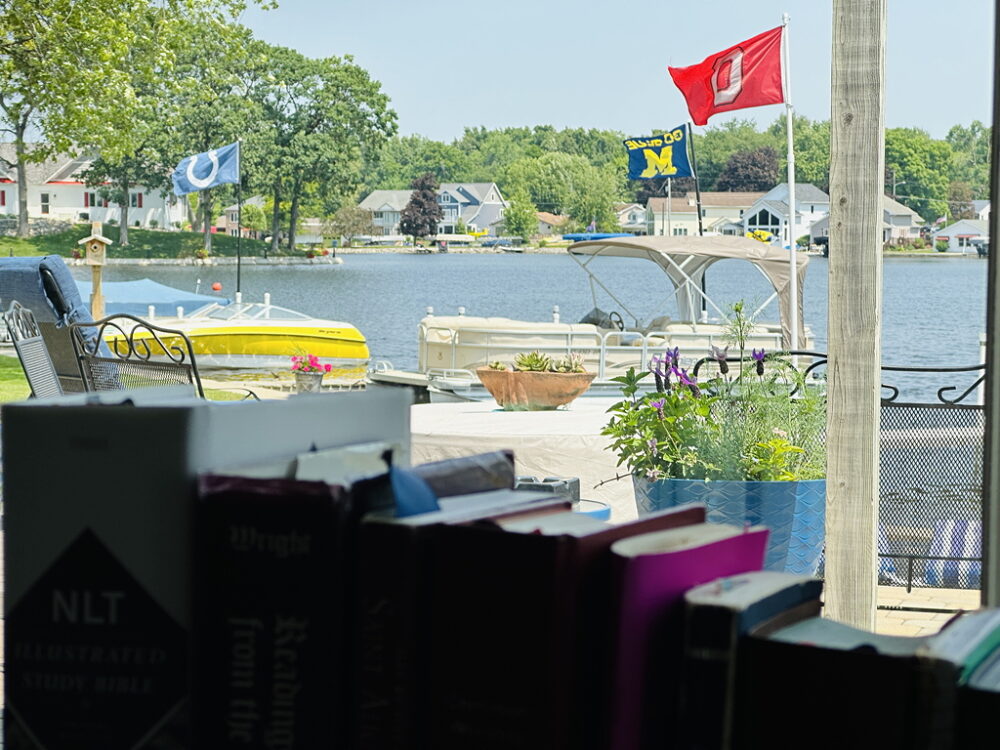
From here.
But on the fiftieth day, that is, the Lord’s Day, when the people have a very great deal to go through, everything that is customary is done from the first cockcrow onwards; vigil is kept in the Anastasis, and the bishop reads the passage from the Gospel that is always read on the Lord’s Day, namely, the account of the Lord’s Resurrection, and afterwards everything customary is done in the Anastasis [the cross], just as throughout the whole year. But when morning is come, all the people proceed to the great church, that is, to the martyrium [the church], and all things usual are done there; the priests preach and then the bishop, and all things that are prescribed are done, the oblation being made, as is customary on the Lord’s Day, only the same dismissal in the martyrium is hastened, in order that it may be made before the third hour [9am].
And when the dismissal has been made at the martyrium, all the people, to a man, escort the bishop with hymns to Sion, [so that] they are in Sion when the third hour is fully come. And on their arrival there the passage from the Acts of the Apostles is read where the Spirit came down so that all tongues [were heard and all men] understood the things that were being spoken, and the dismissal takes place afterwards in due course For the priests read there from the Acts of the Apostles concerning the selfsame thing, because that is the place in Sion—there is another church there now—where once, after the Lord’s Passion, the multitude was gathered together with the Apostles, and where this was done, as we have said above. Afterwards the dismissal takes place in due course, and the oblation is made there. Then, that the people may be dismissed, the archdeacon raises his voice, and says: “Let us all be ready to day in Eleona, in the Imbomon [place of the Ascension], directly after the sixth hour [noon].”
So all the people return, each to his house, to rest themselves, and immediately after breakfast they ascend the Mount of Olives, that is, to Eleona, each as he can, so that there is no Christian left in the city who does not go. When, therefore, they have gone up the Mount of Olives, that is, to Eleona, they first enter the Imbomon, that is, the place whence the Lord ascended into heaven, and the bishops and the priests take their seat there, and likewise all the people. Lessons are read there with hymns interspersed, antiphons too are said suitable to the day and the place, also the prayers which are interspersed have likewise similar references. The passage from the Gospel is also read where it speaks of the Lord’s Ascension, also that from the Acts of the Apostles which tells of the Ascension of the Lord into heaven after His Resurrection. And when this is over, the catechumens and then the faithful are blessed, and they come down thence, it being already the ninth hour [3pm], and go with hymns to that church which is in Eleona, wherein is the cave where the Lord was wont to sit and teach His Apostles. And as it is already past the tenth hour [4pm] when they arrive, lucernare takes place there; prayer is made, and the catechumens and likewise the faithful are blessed.
And then all the people to a man descend thence with the bishop, saying hymns and antiphons suitable to that day, and so come very slowly to the martyrium. It is already night when they reach the gate of the city, and about two hundred church candles are provided for the use of the people. And as it is agood distance from the gate to the great church, that is, the martyrium, they arrive about the second hour of the night, for they go the whole way very slowly lest the people should be weary from being afoot. And when the great gates are opened, which face towards the market-place, all the people enter the martyrium with hymns and with the bishop. And when they have entered the church, hymns are said, prayer is made, the catechumens and also the faithful are blessed; after which they go again with hymns to the Anastasis, where on their arrival hymns and antiphons are said, prayer is made, the catechumens and also the faithful are blessed; this is likewise done at the Cross. Lastly, all the Christian people to a man escort the bishop with hymns to Sion, and when they are come there, suitable lessons are read, psalrns and antiphons are said, prayer is made, the catechumens and the faithful are blessed, and the dismissal takes place. And after the dismissal all approach the bishop’s hand, and then every one returns to his house about midnight. Thus very great fatigue is endured on that day, for vigil is kept at the Anastasis from the first cockcrow, and there is no pause from that time onward throughout the whole day, but the whole celebration (of the Feast) lasts so long that it is midnight when every one returns home after the dismissal has taken place at Sion.
—Egeria, Abbess (late 4th century), The Pilgrimage of Egeria, 85-90
![]()










You must be logged in to post a comment.